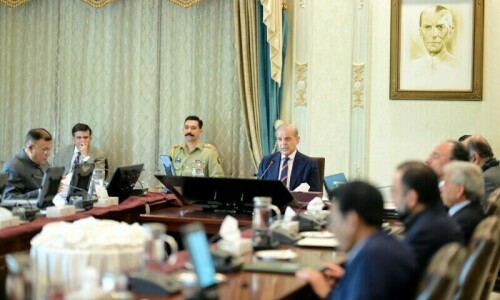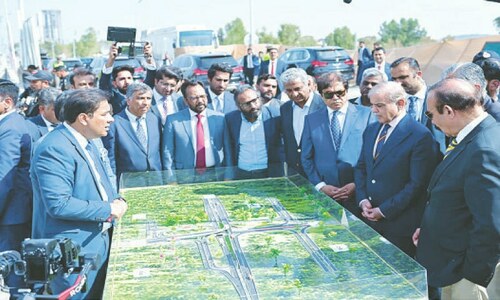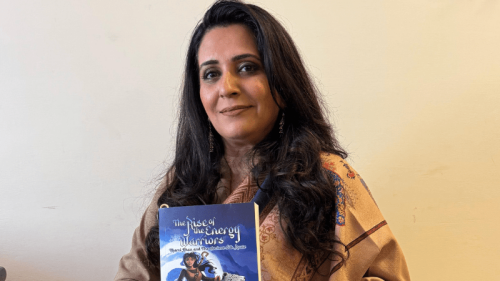ISLAMABAD, Nov 1: Experts at a conference on Tuesday said Pakistan would suffer 16 to 17 per cent drop in water supply from Afghanistan after construction of 13 dams on Kabul River.
They said time had come to enter into a water treaty with Afghanistan to avoid water related conflicts between the two countries.
They said with the active support of India many of these projects were in the implementation and designing phase.
The water conference entitled “Regional Water Governance: Facing Scarcity, Enhancing Cooperation” was organised by Leadership for Environment and Development (LEAD) Pakistan and was funded by French Embassy.
Federal Secretary of Water & Power Ashfaq Mahmood said it was the right time for Islamabad to sit with Kabul and form a water treaty otherwise it would be too late.
He said water insecurity was badly affecting the people and the economy. He underlined that Pakistans water per capita had fallen by 78.4 per cent since 1947 which means that Pakistan needed heavy investment in the water sector.
“Pakistan has made efforts to bring Afghanistan at negotiating table over water sharing but Kabul has always excused by saying that they are working to frame their own National Water Policy and it is not possible to initiate talks until that policy is completed,” Mr Ashfaq Mahmood said.
He also talked about the Indian cooperation with Afghan authorities over water, and said that the proposed 13 dams would adversely affect the Pakistans irrigation system.
“The crucial 16 to 17 per cent water supply from the Kabul River when Indus River sleeps during the winter will decline after these projects are completed,” he added.
International experts in the conference urged the need for a greater trust and science-based dialogues between the two inseparable states in order to understand and resolve water issues as well as explore feasible solutions.
Several suggestions were made during the conference such as to carry out a capacity audit of water related institutions. Indus River System Authority (IRSA) was mentioned as a negotiating forum in the conference and suggestion was made to have an IRSA like institution for Pakistan-Afghan water issues.
The conference was first of its kind in Pakistan as it focused on water cooperation between Pakistan and Afghanistan.
Speaking at the conference, former Wapda chairman Shamsul Mulk said, “We need to have people in Pakistan and Afghanistan who say 'this is our river, not your not mine'. He insisted that in the field of water “sub-optimality is not an option”.
LEAD Pakistan CEO Ali Tauqeer Sheikh said that water Treaty between Pakistan and Afghanistan was very necessary to avoid future conflicts.
Ali Tauqeer Sheikh further said that by initiating a dialogue on trans-boundary water issues, they have laid down foundations of effective governance mechanism and reminded the water community of the necessity to balance human needs and ecological protection.
“We need to develop a water security management plan and also we need to train the next generation of the water diplomats and leaders” he added.














































Dear visitor, the comments section is undergoing an overhaul and will return soon.